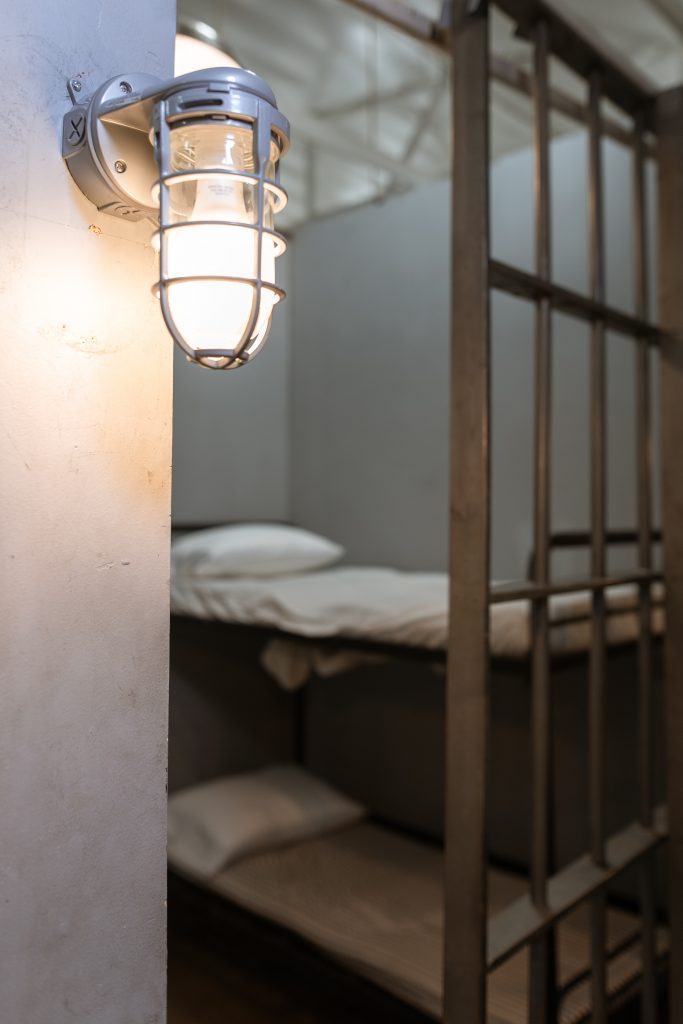When an individual has a felony on their criminal record, it can make moving forward and doing basic things much more difficult. Just one task that can become tough with a felony is securing housing. While having a felony doesn’t completely remove the chance of renting an apartment or home, it does present certain potential roadblocks that should be understood. Read on to learn more about housing for felons, the rights of both the renter and landlord, and some of the programs that are in place to help.
Can Landlords Refuse Rental Because of a Felony?
There are protections in place to prevent the discrimination of renters. The Fair Housing Act from the U.S. Department of Housing and Urban Development (HUD) specifically includes protections against the discrimination for reasons of:
- Race
- Color
- National Origin
- Religion
- Sex
- Familial Status
- Disability

Felonies are not included in the protections. Does this mean that a landlord can refuse to rent to an individual with a felony on their criminal record? Yes. While it doesn’t mean that all refusals are “fair,” it does often mean that refusing to rent to a felon is not in direct violation of the Fair Housing Act. That doesn’t mean, however, that there are not some guidelines put in place to prevent the unfair treatment of those with criminal records. On the landlord’s side of the decision of whether to rent to someone with a felony criminal record, HUD breaks a potential instance of discrimination into two categories: unintentional discrimination and intentional discrimination.
Unintentional Discrimination
To help ensure a landlord isn’t unfairly discriminating against individuals with felony criminal pasts, HUD uses three steps to determine if the case in question was an instance of unintentional discrimination.
Does the policy have a discriminatory effect?
If a potential renter is accusing a landlord of having a discriminatory policy, they must prove that the policy in question has a negative effect on a certain race or national origin more than others. In the context of felons, this could be used to prove that not renting because of certain criminal backgrounds is specifically used to target a race that has higher statistics of those crimes than others.
Is the policy necessary to achieve a legitimate nondiscriminatory interest?

An accused landlord must prove their refusal is not discriminatory for a legitimate reason. In dealing with some cases of housing for felons, a landlord will claim the refusal in question was to ensure the safety of other tenants. While this is often enough of a reason to make the refusal legitimate, a landlord must also have a specific reason as to why the crime committed by the potential tenant shows a higher risk than other crimes. How recently the crime was committed can also come into play here; a crime committed decades ago is harder to point to as a safety threat than one committed more recently.
Is there a less discriminatory alternative?
If a landlord can justify a criminal records policy against renters, a renter can also try to show there’s a less discriminatory alternative. This can include less-broad reasons such as specific details of the crime in question (age it was committed, rehabilitation efforts since it was committed, etc.) and other relevant personal statistics such as the potential tenant’s rental history.
The Three Steps of Unintentional Discrimination
HUD uses a three-step process to help determine if a landlord has unintentionally discriminated against a potential tenant. The process is:
- Does the policy have a discriminatory effect?
- Is the policy necessary to achieve a legitimate nondiscriminatory interest?
- Is there a less discriminatory alternative?
 Intentional Discrimination
Intentional Discrimination
When a landlord’s rental decisions are not consistent, especially when refusing potential tenants from any of the protections detailed in the Fair Housing Act, it can be considered a case of intentional discrimination. In this way, a refusal to rent because of a past felony charge can be shown to be because of a discriminatory reason instead.
Refusal to Rent Because of Drug Charges
A small caveat to instances of potential renter discrimination comes into play when drug charges are involved. Landlords can’t be convicted of unintentional discrimination for refusing to rent to a potential tenant who has been convicted of the illegal manufacture or distribution of a controlled substance.
Housing For Felons and Section 8
 What is Section 8 Housing?
What is Section 8 Housing?
Section 8 housing was designed to help, “very low-income families, the elderly, and the disabled to afford decent, safe, and sanitary housing in the private market.” Qualified renters can receive housing vouchers that pay up to 70% of a building’s rent (Section 8 housing is only available in specific apartment complexes).
Do Felons Qualify for Section 8 Housing?
Individuals with felonies on their criminal records can qualify for Section 8 housing, but there are certain types of felonies that disqualify an individual from the program. The two types of felonies that disqualify an individual from qualifying for Section 8 housing are:
- Any crime that requires a registration to the national sex offender registry for life
- A conviction of making methamphetamine in a government-subsidized building

 Intentional Discrimination
Intentional Discrimination What is Section 8 Housing?
What is Section 8 Housing?